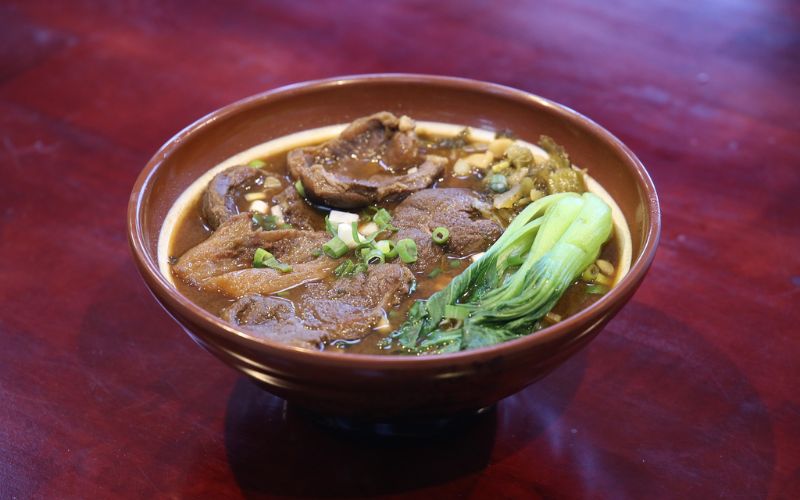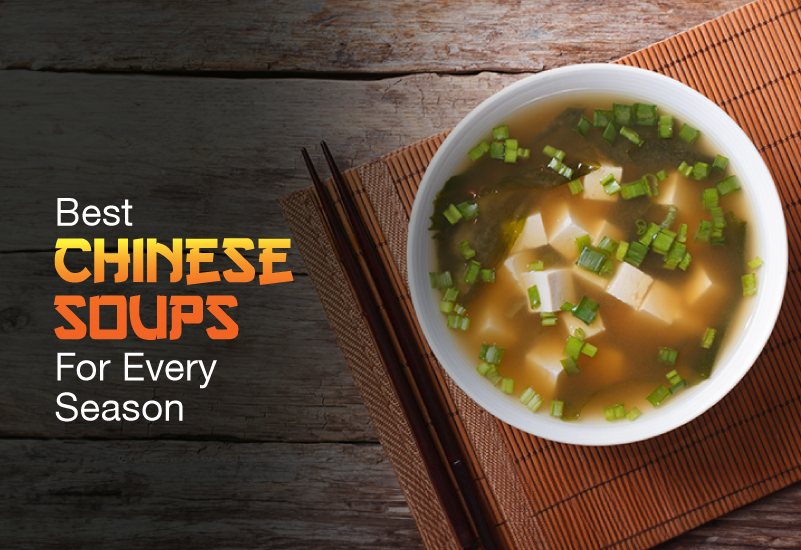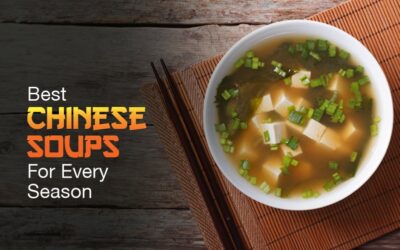Introduction
Chinese cuisine offers a variety of soups tailored to the changing seasons, each with unique ingredients and health benefits. Light and detoxifying soups like Green Vegetable and Tofu Soup are popular for revitalisation in spring. Summer calls for cooling and hydrating options such as Winter Melon Soup to beat the heat.
Autumn soups like Chicken and Ginseng Soup focus on nourishing the body and boosting immunity as the weather cools.
In winter, warming and strengthening soups such as Hot and Sour Soup are favoured to combat the cold. These soups are not only delicious but also reflect Chinese cuisine’s cultural significance and traditional wisdom in promoting health and balance throughout the year.
Spring: Revitalising and Detoxifying chinese Soups for every season

1. Green Vegetable and Tofu Soup
Ingredients: Leafy greens (such as spinach or bok choy), tofu, ginger, and garlic.
Benefits: This soup is light and refreshing, perfect for spring when the body needs detoxification and revitalisation. The leafy greens provide essential vitamins and minerals, while tofu offers a source of protein.
2. Lotus Root Soup with Pork Ribs
Ingredients: Lotus root, pork ribs, red dates, and goji berries.
Benefits: Lotus root is known for its ability to improve digestion and respiratory health, making it ideal for spring’s transitional weather. The soup is also believed to boost energy levels.
Summer: Cooling and Hydrating Soups
1. Winter Melon Soup
Ingredients: Winter melon, shiitake mushrooms, and ginger.
Benefits: Despite its name, winter melon is a summer favourite due to its cooling properties. It is high in water content, helping to hydrate the body and reduce heat.
2. Mung Bean Soup
Ingredients: Mung beans, rock sugar, and dried tangerine peel.
Benefits: Mung bean soup is a traditional remedy for cooling the body and detoxifying. It is often consumed to relieve heatstroke and summer heat.
Autumn: Nourishing and Immune-Boosting Soups
1. Chicken and Ginseng Soup
Ingredients: Chicken, ginseng, goji berries, and ginger.
Benefits: As the weather cools, this soup helps to warm the body and boost the immune system. Ginseng is known for its energy-boosting and immune-enhancing properties.
2. Pumpkin and Pork Rib Soup
Ingredients: Pumpkin, pork ribs, corn, and carrots.
Benefits: Pumpkin is rich in beta-carotene and vitamins, making this soup an excellent choice for nourishing the skin and eyes. It’s also a comforting choice for the cooler autumn weather.
Winter: Warming and Strengthening Soups

1. Hot and Sour Soup
Ingredients: Bamboo shoots, tofu, mushrooms, and a variety of seasonings.
Benefits: This soup is both warming and appetising, perfect for cold winter days. It’s believed to help expel cold and improve digestion.
2. Beef and Radish Soup
Ingredients: Beef, white radish (daikon), ginger, and goji berries.
Benefits: The combination of beef and radish is believed to warm the body and strengthen the stomach. It’s a hearty and comforting soup for the winter season.
Nutritional and Cultural Significance
Chinese soups are not only delicious but also packed with nutritional benefits. Traditional Chinese medicine often uses them to balance the body’s yin and yang, improve overall health, and prevent seasonal illnesses. The ingredients are carefully selected based on their healing properties and their ability to complement each other.
Culturally, soups play a significant role in Chinese dining. They are typically served at the beginning of a meal to stimulate the appetite and prepare the digestive system for the dishes to follow. Soups are also a symbol of warmth and hospitality, often shared among family and friends.
Tips for Making Chinese Soups
Use Fresh Ingredients: The ingredients’ quality dramatically affects the soup’s taste and nutritional value.
Simmer Slowly: Many Chinese soups benefit from slow simmering, which allows the flavours to meld and the nutrients to be fully extracted.
Balance Flavors: Chinese soups often aim for a balance of flavours, such as sweet, sour, bitter, and savoury. Adjust the seasonings to achieve this harmony.
Seasonal Adaptation: Feel free to adapt the soups to the available seasonal ingredients and your personal health needs.
Conclusion
Chinese soups provide a delicious and nutritious way to savour seasonal flavours and support overall health. In spring, green vegetables and tofu soup detoxifying properties help cleanse the body. Summer’s heat is countered with cooling soups like winter melon soup, which hydrates and refreshes. Autumn brings nourishing soups such as chicken and ginseng soup to boost immunity and prepare the body for colder weather.
Warming soups like beef and radish soup provide comfort and strength in winter. By integrating these soups into your diet, you can enjoy the rich culinary heritage of traditional Chinese cuisine while benefiting from its holistic approach to health and well-being.
FAQs
- What are some popular Chinese soups for spring?
Green Vegetable and Tofu Soup and Lotus Root Soup with Pork Ribs are popular choices for their detoxifying and energising properties.
- What makes winter melon soup a good choice for summer?
Winter melon soup is high in water content and has cooling properties, making it ideal for hydrating and reducing heat in the body during summer.
- Can Chinese soups help boost the immune system in autumn?
Yes, soups like Chicken and Ginseng Soup are known for their immune-boosting properties, making them great for autumn when the weather starts to cool.
- What are some warming soups for winter?
Hot and Sour Soups and Beef and Radish soups are excellent choices for winter as they are warming and help strengthen the body against the cold.
- Are Chinese soups suitable for vegetarians or vegans?
Yes, many Chinese soups can be adapted for vegetarians or vegans by using vegetable broth and substituting meat with tofu or mushrooms.
- How can I make my Chinese soups more flavorful?
You can enhance the flavour of your soups by using fresh herbs, spices, and seasonings like ginger, garlic, and soy sauce.
- Can I prepare Chinese soups in advance and store them?
Yes, most Chinese soups can be prepared in advance and stored in the refrigerator for a few days or frozen for longer storage. Just reheat gently before serving.




